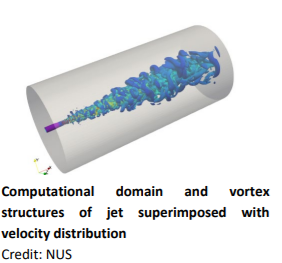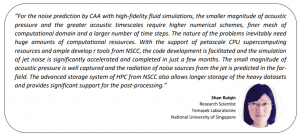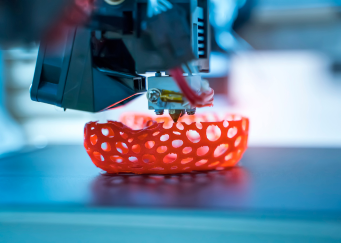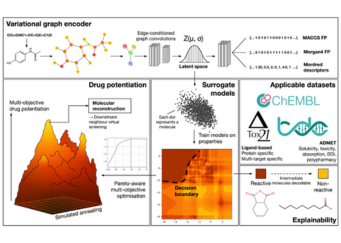Researchers from NUS are harnessing the power of supercomputing to understand the mechanism of noise generated by jet engines to reduce the impact of noise emission on the environment and human health.
 The noise generated by modern aircraft has been a long-standing noisepollution problem since the first commercial jet-engine-powered aircraft entered in the early 1950’s. The elevated acoustic noise levels from aviation in flight has serious adverse impact on the health and well-being of people who live or work near airports. These health problems include, but are not limited to, hearing impairment, sleep disturbance, increased stress levels and the increased risk of hypertension and heart disease, which affect all age groups, especially children.
The noise generated by modern aircraft has been a long-standing noisepollution problem since the first commercial jet-engine-powered aircraft entered in the early 1950’s. The elevated acoustic noise levels from aviation in flight has serious adverse impact on the health and well-being of people who live or work near airports. These health problems include, but are not limited to, hearing impairment, sleep disturbance, increased stress levels and the increased risk of hypertension and heart disease, which affect all age groups, especially children.
A typical turbofan civilian aircraft during take-off can generate an overall sound pressure level (OASPL) of approximately 100 dB, measured about 100ft away from the runway centre line. Much of the noise emission from jet-engine-powered aircraft originate from the airframe and engines. The noise produced from jet exhaust is by far the major source of noise pollution especially for low bypass ratio engines.
To reduce its impact on the environment and health, it is essential to understand the mechanism of noise generation, which can be challenging due to the complex physics of turbulent flow and its interaction with the acoustic field. A team of researchers at NUS’ Temasek Laboratories are utilising NSCC’s supercomputing resources in an attempt to employ the computational aeroacoustics (CAA) method with high-fidelity numerical simulations to accurately resolve the jet flow and predict its noise emissions. The research hopes to improve the understanding of the underlying physical process of noise generation and radiation.

To find out more about the NSCC’s HPC resources and how you can tap on them, please contact [email protected].
NSCC NewsBytes September 2021
Other Case Studies
Using Digital Twin Technology to Optimise the Industrial 3D Printing Process
Researchers from the Institute of High-Performance Computing (IHPC) are utilizing supercomputers to create a digital twin that furnishes users with comprehensive information...
Accelerating electric vehicles research through HPC
Researchers from A*STAR IHPC leverage supercomputing resources to improve the performance of lithium-ion battery technology With the ever-increasing demand in energy storage...
Advancing Drug Discovery Research using NSCC HPC resources
Researchers from Nanyang Technological University (NTU) are applying variational graph encoders as an effective generalist algorithm in computer-aided drug design (CADD)....


